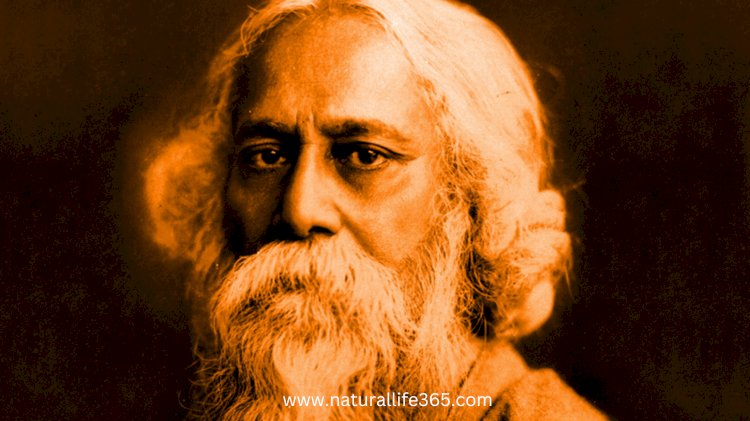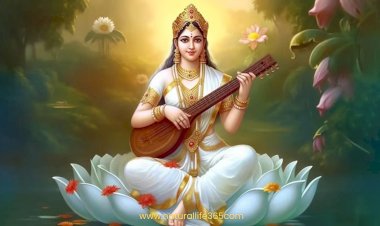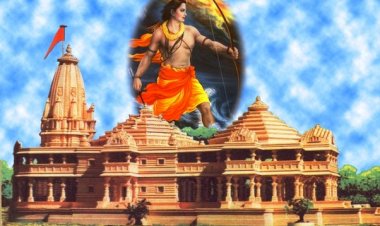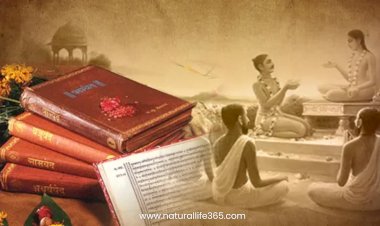Tagore and the Bengali Renaissance: An Exploration of His Influence on Indian Culture and Beyond
Discover how Rabindranath Tagore's genius has shaped Indian literature and culture. Gain insight into his impact as a poet, novelist, and philosopher.

The Bengali Renaissance was a period of cultural, social, and intellectual awakening that took place in Bengal, India during the late 19th and early 20th centuries. At the forefront of this movement was Rabindranath Tagore, one of India's most celebrated literary figures and a cultural icon.
Tagore's literary works, philosophy, and ideas played a significant role in shaping the Bengali Renaissance and its impact on Indian culture and beyond.
In this blog post, we will explore the life and works of Tagore and his contributions to the Bengali Renaissance. We will also delve into the lasting influence of Tagore's ideas on Indian society, culture, and beyond.
You can also read A Tribute to India Independence Day: Reflecting on Courage and Heritage
Who was Rabindranath Tagore?
Rabindranath Tagore was a multi-talented Indian poet, philosopher, musician, and social reformer who lived from 1861 to 1941. He was the first non-European to be awarded the Nobel Prize for Literature in 1913, for his collection of poems called Gitanjali (Song Offerings).
Tagore was born into a wealthy Bengali family and began writing poetry at a young age. He went on to become one of the most influential figures of the Bengal Renaissance, a cultural and intellectual movement that aimed to modernize and reform Bengali society.
Tagore's literary works, which include poetry, novels, and plays, are known for their beauty, simplicity, and spiritual depth. His philosophy emphasized the interconnectedness of all things, the importance of the individual, and the need for social reform and justice.
Tagore was also a prominent social activist and played a key role in the Indian independence movement. Today, Tagore is widely regarded as one of the greatest writers and thinkers in Indian history, and his legacy continues to inspire and influence people around the world.
Rabindra Jayanti is observed annually to commemorate Nobel laureate Rabindranath Tagore's birth anniversary. This year marked the 162nd birth anniversary of Tagore's birth on May 7. However, his Jayanti does not always fall on the same day. This is because his Jayanti falls on the 25th day of the Bengali month of 'Boishakh'. And this day is rarely the same as the date in the Gregorian calendar. Rabindranath Tagore Jayanti was celebrated on May 9, 2023. This date changes every year.
Tagore's Literary Contributions
Discussion of Tagore's Literary Works, Including Novels, Poetry, and Songs
Nationalism - Hardcover - 104 pages
Rabindranath Tagore's literary contributions were a cornerstone of the Bengali Renaissance, and his works continue to influence Indian literature and beyond. Tagore's writings encompass a range of genres, including novels, poetry, and songs.
Tagore's novels, such as "The Home and the World," explore themes of nationalism, love, and duty. The novel was written in the context of India's struggle for independence from British rule, and it reflects Tagore's views on the complexity of India's political and social situation at the time. The novel was widely acclaimed for its realistic portrayal of the characters and the society they inhabited.
Tagore's poetry is perhaps his most renowned literary contribution, with works like "Gitanjali" earning him the Nobel Prize for Literature in 1913. His poetry explores themes of nature, love, spirituality, and humanism. Many of his poems have been set to music and continue to be sung today.
Tagore's songs, known as "Rabindra Sangeet," are an essential part of Indian cultural heritage. His songs reflect the diversity of Indian culture and are characterized by their simple melodies and profound lyrics. His music combines elements of Indian classical music and folk music, and his compositions have been performed by both professional and amateur musicians.
Overall, Tagore's literary works continue to inspire readers and scholars alike. His exploration of themes such as love, nationalism, spirituality, and humanism transcends time and continues to resonate with readers of all ages and backgrounds.
Analysis of How Tagore's Writing Contributed to the Bengali Renaissance
Gitanjali - Paperback - 128 pages
Rabindranath Tagore's literary contributions played a significant role in the Bengali Renaissance, a period of cultural, social, and intellectual awakening in Bengal, India. Tagore's writing contributed to this movement in several ways.
Firstly, Tagore's literature reflected the social and cultural context of his time. His novels, poetry, and songs explored the themes of love, nationalism, spirituality, and humanism. They represented the voice of the Indian people and reflected the complexity of Indian society during the colonial period.
Secondly, Tagore's literature was characterized by a fusion of traditional Indian and Western literary forms. He combined elements of Indian classical music, folk music, and literature with Western literary forms to create a unique style that represented the cultural diversity of India. This approach to literature was revolutionary and contributed to the development of modern Indian literature.
Thirdly, Tagore's works inspired a generation of writers and artists during the Bengali Renaissance. His literary works encouraged creative expression and the pursuit of intellectual freedom. This led to the establishment of literary clubs and societies that facilitated literary discussions and debates.
Finally, Tagore's literature helped to create a sense of national identity among the Indian people. His writings emphasized the importance of cultural heritage and the need to celebrate India's diversity. This inspired a sense of national pride and contributed to the development of a modern Indian identity.
In conclusion, Tagore's literary contributions were crucial to the Bengali Renaissance. His works reflected the social and cultural context of his time, combined Indian and Western literary forms, inspired a generation of writers and artists, and helped to create a sense of national identity among the Indian people.
Discussion of Tagore's Themes and the Relevance of His Works Today
Selected Stories of Rabindranath Tagore - Paperback - 372 pages
Rabindranath Tagore's literary works explored themes that continue to be relevant today, both in India and beyond. His writing explored themes of love, nationalism, spirituality, and humanism, all of which continue to resonate with readers.
Tagore's exploration of love is particularly significant. His writings emphasized the importance of human relationships and the need for empathy and understanding in society. In today's world, where divisions based on race, religion, and culture are increasingly prevalent, Tagore's emphasis on love and understanding is more important than ever.
Tagore's writings on nationalism were also groundbreaking. His works emphasized the importance of cultural heritage and the need to celebrate diversity. In today's world, where nationalism is often associated with exclusion and intolerance, Tagore's writings provide a counter-narrative that emphasizes inclusivity and celebrates diversity.
Tagore's exploration of spirituality also remains relevant today. His writings emphasized the importance of inner transformation and the need for spiritual growth. In today's world, where materialism and consumerism are prevalent, Tagore's emphasis on spirituality provides a reminder of the importance of inner growth and personal development.
Finally, Tagore's emphasis on humanism remains a critical theme in his work. His writings emphasized the importance of the individual and the need for empathy and understanding in society. In today's world, where conflicts and divisions are increasingly prevalent, Tagore's emphasis on humanism provides a counter-narrative that emphasizes the importance of understanding and empathy.
Tagore's Philosophy and Ideas
Explanation of Tagore's Philosophy of Education and Its Impact on Indian Education
Kabuliwala - Paperback - 152 pages
Rabindranath Tagore's philosophy of education emphasized the importance of creating a learning environment that was free from the constraints of traditional education systems. Tagore believed that education should be a holistic process that nurtured the mind, body, and soul of the student.
Tagore's educational philosophy was based on the concept of "Santiniketan," which means "abode of peace." The idea behind this concept was to create an environment where students could learn without any stress or pressure. Tagore believed that this would encourage creativity and innovation, allowing students to reach their full potential.
One of the key features of Tagore's educational philosophy was the emphasis on nature. Tagore believed that nature was an essential part of the learning process and that students should be taught to appreciate its beauty and complexity. This emphasis on nature encouraged students to develop a sense of environmental consciousness and helped to create a connection between the student and their surroundings.
Another important aspect of Tagore's educational philosophy was the emphasis on individuality. Tagore believed that each student was unique and that education should be tailored to their individual needs and interests. This allowed students to explore their passions and develop their talents, creating a sense of personal fulfillment and satisfaction.
Tagore's philosophy of education had a significant impact on Indian education. His ideas helped to inspire a new approach to education that was more focused on the individual student and their needs. Today, many schools in India incorporate elements of Tagore's philosophy into their teaching methods, creating a learning environment that is more holistic and student-centered.
Discussion of Tagore's Ideas about Nationalism, Spirituality, and Humanism
Greatest Works of Rabindranath Tagore (Deluxe Hardbound Edition) - 672 pages
Rabindranath Tagore's ideas about nationalism, spirituality, and humanism were central to his philosophy and worldview. He was deeply committed to the ideals of humanism and believed in the fundamental unity of humanity.
Tagore rejected the narrow and divisive aspects of nationalism, which he believed created a sense of artificial separation between different communities. Instead, he saw nationalism as an expression of love for one's country and its people, and as a means of fostering cultural exchange and mutual understanding.
Tagore's ideas about spirituality were rooted in his belief in the interconnectedness of all life. He saw spirituality as a way of transcending the limitations of the ego and achieving a deeper understanding of the world and our place in it. For Tagore, spirituality was not limited to any particular religion or belief system but was a universal aspect of human experience.
Tagore's commitment to humanism was reflected in his belief in the importance of social justice and the need to create a more equitable and inclusive society. He believed that all people, regardless of their race, gender, or social status, were entitled to dignity and respect and that it was the duty of individuals and societies to work towards the realization of this goal.
Analysis of How Tagore's Ideas Influenced Indian Society and Culture
Sadhana - The Realization of Life - Paperback - 120 pages
Rabindranath Tagore's ideas had a profound impact on Indian society and culture. His belief in the fundamental unity of humanity and rejection of narrow nationalism helped to shape the course of Indian nationalism and the struggle for independence from British rule.
Tagore's ideas also influenced Indian literature, music, and art. His emphasis on humanism and spirituality, and his celebration of nature, had a significant impact on the development of modern Indian literature and poetry. His poems and songs continue to be widely read and sung today, and his literary works are considered among the finest in the Indian literary tradition.
Tagore's philosophy of education also had a lasting impact on Indian society. His emphasis on creativity, self-expression, and individuality helped to shape the educational system in India, and his ideas continue to be influential in the field of education today.
Furthermore, Tagore's ideas about social justice and the need for a more equitable and inclusive society continue to resonate with people in India and around the world. His commitment to the welfare of all people, regardless of their social status, race, or gender, has helped to inspire many social movements and initiatives aimed at creating a more just and humane world.
Tagore's Legacy and Impact
Overview of Tagore's achievements and awards, including the Nobel Prize for Literature
The Religion of Man: Rabindranath Tagore - Paperback - 240 pages
Rabindranath Tagore was a prolific writer, poet, and social reformer who made significant contributions to Indian culture and society. He is widely regarded as one of the greatest literary figures of the modern era.
Tagore's achievements are numerous, but perhaps his most significant accolade was winning the Nobel Prize for Literature in 1913. He was the first non-European to receive the award and was recognized for his collection of poems, Gitanjali.
Aside from his Nobel Prize, Tagore also received numerous other honors and awards throughout his lifetime. He was awarded the Knighthood by the British government in 1915, although he later returned it in protest against the Jallianwala Bagh massacre. In 1940, he was conferred with the title of "Bharat Ratna," India's highest civilian award.
Tagore's impact was not limited to literature and social reform. He was also a respected philosopher and painter, and his works in these fields were also recognized and celebrated. In addition to his literary works, Tagore also composed over 2,000 songs, many of which are still widely sung and beloved in India and beyond.
Overall, Rabindranath Tagore's achievements and awards are a testament to his immense talent, creativity, and influence. His legacy continues to inspire people around the world, and his contributions to literature, music, art, and social justice will undoubtedly continue to be celebrated for generations to come.
Discussion of Tagore's Influence on Indian Art, Music, and Culture
Red Oleanders - Paperback - 148 pages
Rabindranath Tagore's influence on Indian art, music, and culture cannot be overstated. As a multi-talented artist, writer, and philosopher, his works continue to inspire generations of Indians and have had a significant impact on the development of Indian art, music, and culture.
Tagore was a prolific composer and musician, and his songs have become a staple of Indian music. He drew inspiration from both traditional Indian music and Western classical music, and his compositions reflected a unique blend of both. His songs, often referred to as "Rabindra Sangeet," are still popular today and are performed and listened to across India and beyond.
Tagore's influence on Indian art was similarly significant. As a painter, he developed a unique style that reflected his philosophical views and his connection to the natural world. His works often featured vibrant colors and simple, organic shapes, and were admired for their beauty and simplicity.
Tagore was also a pioneer in the field of modern Indian literature, and his writing helped shape the Bengali Renaissance. His works addressed a range of themes, including love, spirituality, social justice, and the beauty of nature. His writing style was often experimental and poetic, and he pushed the boundaries of traditional literary forms.
Overall, Rabindranath Tagore's influence on Indian art, music, and culture is immeasurable. His works continue to inspire and resonate with people around the world, and his legacy as a multi-talented artist, writer, and philosopher remains strong today.
Analysis of Tagore's Impact Beyond India, Including His Influence on Western Literature and Thought
Sesher Kobita the Last Poem - Paperback - 220 pages
Rabindranath Tagore's impact goes far beyond India and the Indian subcontinent. His works have had a profound influence on Western literature and thought, particularly in the fields of poetry and philosophy.
Tagore's poetry, with its universal themes of love, nature, and spirituality, has been translated into many languages and is admired by readers around the world. His poems have been praised for their beauty, simplicity, and depth of feeling, and they have influenced many Western poets, including W.B. Yeats and Ezra Pound.
In addition to his poetry, Tagore's philosophy has also had a lasting impact on Western thought. His emphasis on the interconnectedness of all things and his rejection of narrow nationalism and parochialism resonated with many Western intellectuals, and his ideas about spirituality and the importance of the individual have been influential in the development of modern philosophy.
Tagore was also a key figure in the movement for Indian independence, and his writings and activism helped raise awareness about the plight of the Indian people under British rule. His message of freedom, justice, and equality inspired many Western intellectuals and activists, including Mahatma Gandhi and Martin Luther King Jr.
You can also read Kolkata Unplugged: Diving Into The Heart of The City
In conclusion, Rabindranath Tagore was a visionary poet, philosopher, and social reformer whose influence on Indian culture and beyond cannot be overstated. Through his literary works, philosophy, and activism, Tagore contributed to the Bengali Renaissance and helped shape modern Indian society.
His emphasis on humanism, spirituality, and the interconnectedness of all things continues to resonate with readers and thinkers around the world, and his ideas have had a lasting impact on Western thought and literature.
Tagore's legacy as a poet, philosopher, and social reformer remains strong today, and his works continue to inspire and challenge us to strive for a better world.
If you value these free online resources provided by Natural Life 365, please consider supporting my website by sharing the blogs![]()
DISCLAIMER:
Some of the links in this content may be affiliate links. This means that if you click on one of the links and make a purchase, I may receive a commission (at no extra charge to you). However, I only recommend products that I personally use and have tested myself. Also, understand that I have taken reasonable steps to ensure that the information on this content is accurate, but I cannot represent that the website(s) mentioned in this post are free from errors. Please, check the Affiliate Disclosure at the bottom of this website.








































